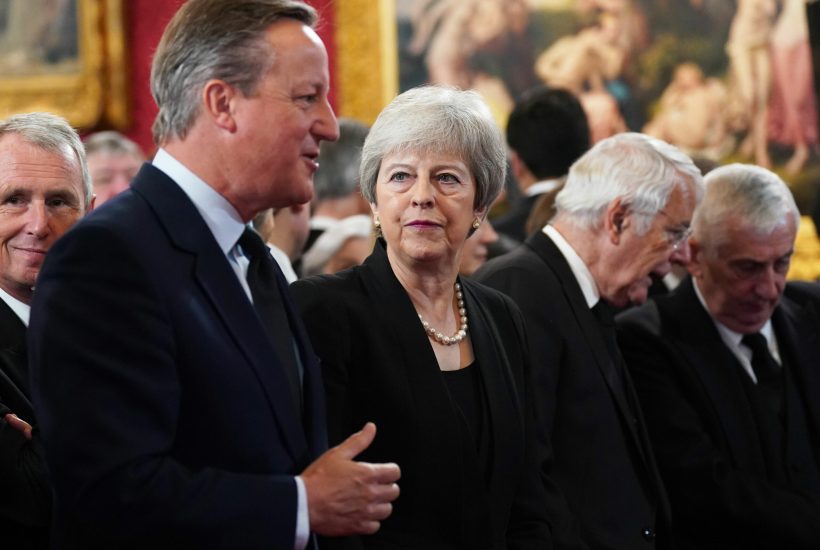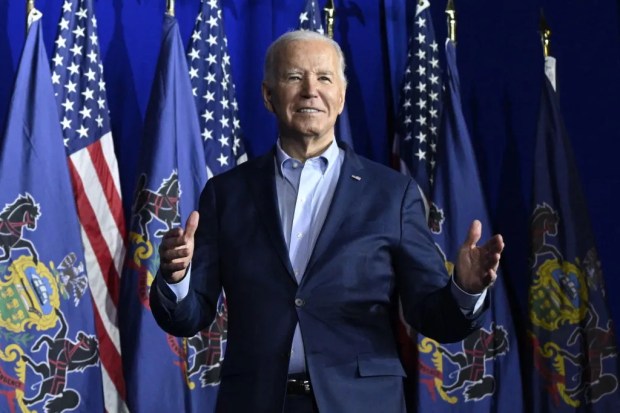New year, old politicians. Yesterday’s men will loom large in the politics of 2023.
British politics has a nostalgia problem, often to the benefit of our over-large population of former prime ministers. They may have disappointed in office, but the urge to rose-tint our memories means failure is no bar to a lucrative or influential post-premiership.
How else to explain the £2 million earned by Theresa May since the end of her painful, pedestrian premiership? Her reputation has also been enhanced through the power of hindsight: during the chaos of 2022’s politics, the history of her shambling, stumbling government was quietly rewritten and she became a ‘grown-up’ politician from a lost age of sensibleness.
On the fringes of political conversation, you can even hear the start of a tendency to recast Liz Truss as a bold visionary who got the analysis right but encountered some minor snags when it came to implementing her plans. 2023 may see her launch a think-tank or growth commission to reinforce that narrative.
Then there’s David Cameron. Posterity will accurately remember him as a dilettante clown who trashed British politics and economics for a generation, then clocked off early for a nice lunch. Yet for now there are people keen to recall him as a calmly competent technocrat who can teach others to rule well: he was recently hired to teach about ‘politics and government in an age of disruption’ at Abu Dhabi University, whose leaders clearly have a good sense of irony.
For most of us, the comfortable afterlives of our former rulers are just irritating. But for both Rishi Sunak and Sir Keir Starmer, former leaders will pose real problems in the year ahead.
Sunak’s historical headache is Boris Johnson. That particular former PM may be largely absent from Westminster as he piles up cash delivering the same old speech, but he haunts the place quite effectively nonetheless.
For some Tories, Johnson remains their greatest living leader, driven from office by the betrayal of lesser colleagues. That rose-tinted attachment leaves clear-eyed Tories fearing what damage the Boris Cult might do.
An approaching flashpoint is the Commons inquiry into whether Johnson lied to Parliament about lockdown parties in No 10. A few weeks ago, the government handed over a file of Whitehall documents to the standards committee, chaired by Harriet Harman.
Johnson being hauled before the committee for a public interrogation and possible sanction would pose serious problems for Sunak, whose first priority as prime minister has been Conservative [arty unity – or at least, an absence of strife. His fragile peace could well break when Johnson partisans go to war in defence of their man – and expect the government to do the same.
But to state the obvious, defending a deeply unpopular politician found to have lied about breaking his own laws might have some consequences for a PM already facing an uphill struggle to keep power at the next election.
Assuming, as many Tories do, that Sunak fails at that election, the Boris nostalgics will argue their man would have won it – and should get another crack at the job. The Conservative Democracy Organisation backed by Tory donor and Johnson supporter Lord Cruddas looks to many like a campaign to recapture the party in opposition.
Of course, there are many Tories who are keen to ensure Johnson never returns. ‘I care much less about who leads us in opposition than I do about making sure Boris never comes back,’ says one Tory MP.
But that power of nostalgia means a former prime minister with a determination to stick around can have real influence regardless of his record in office – just ask Gordon Brown.
Brown looms ever larger in Labour circles, in part because Starmer is either unwilling or unable to constrain his predecessor’s attempts to set Labour’s agenda. The awkward launch of Brown’s characteristically hefty report on rebalancing constitutional power in Britain illustrated the difficulties of managing the man Tony Blair once called ‘the great clunking fist’.
The headlines around that launch – ‘Labour to abolish House of Lords’ – left some Labour people wishing Brown would return to a quiet retirement in Scotland. Not because they feel any love for the upper chamber, but because of the way Brown dragged the party’s focus onto issues of great importance to him but of only marginal interest to the electorate.
‘People are scared to put the heating on and we spent three days telling them the most important thing on our minds right now is Lords reform. Thanks Gordon,’ says one colleague.
Starmer shows no sign of sharing the concerns about Brown’s propensity to bulldoze his own ideas onto the agenda. The Labour leader has an emotional attachment to the sort of principled leadership Brown’s admirers say he embodied – the power of nostalgia can grip even party leaders.But just as not all Tories remember Johnson as a hero, not everyone in Labour thinks of Brown as a winner.
Some of the unease about Brown’s influence is a proxy for unhappiness about another former Labour leader who also lost his general election. Ed Miliband’s official title is Shadow Secretary of State for Climate Change and Net Zero, but some of his colleagues fret that his writ runs much further, his friendship with Starmer giving him too much sway over the party’s agenda. ‘Let’s just say it’s an interesting choice to take so much advice from the man who lost the 2010 election and the man who lost the 2015 election,’ says a frontbencher.
Interesting, and revealing. It shows the political urge to believe that things are never as good as they used to be. And no doubt former PMs have some lessons they can teach today’s leaders. But the most important thing to remember about former leaders is that their political careers, like all others, ended in failure.
The best thing to learn from yesterday’s men is how not to repeat their errors.
Got something to add? Join the discussion and comment below.
Get 10 issues for just $10
Subscribe to The Spectator Australia today for the next 10 magazine issues, plus full online access, for just $10.



















Comments
Don't miss out
Join the conversation with other Spectator Australia readers. Subscribe to leave a comment.
SUBSCRIBEAlready a subscriber? Log in